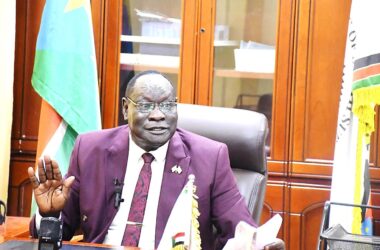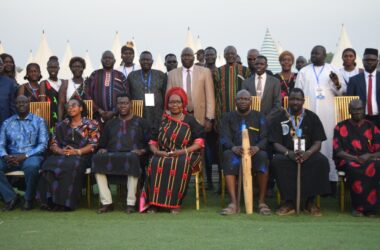By Kei Emmanuel Duku
Six countries in the Horn of Africa, including South Sudan, are set to benefit from a $151 million Green Climate Fund provided by the African Development Bank to address climate vulnerability.
The project, titled “Building Climate Resilience for Food and Livelihoods in the Horn of Africa,” is expected to support at least 4.6 million people across Djibouti, South Sudan, Ethiopia, Kenya, Somalia, and Ethiopia. Of the $151 million, $90.7 million will be in the form of grants and $60.3 million as a loan.
The project is scheduled to begin in the first quarter of 2025 and will be implemented over six years.
The African Development Bank will administer and monitor the funds, while the Ministry of Finance and Agriculture in the five selected countries will oversee project implementation.
The Horn of Africa is particularly vulnerable to climate-related risks, including erratic rainfall, rising temperatures, frequent droughts, and floods. These conditions have exacerbated socioeconomic challenges and threatened the livelihoods of agro-pastoral communities.
Climate change has also contributed to increased livestock, crop, and human diseases, as well as land degradation, reducing agricultural productivity.
Dr. Martin Fregene, the Bank’s Director for Agriculture and Agro-Industry, emphasized that the Green Climate Fund is a crucial initiative to build climate-resilient and sustainable agricultural programs in the region.
“These resources will help consolidate the Feed Africa Strategy and complement the Country Food and Agriculture Delivery Compacts presented at the Dakar 2 Feed Africa: Food Sovereignty and Resilience Summit,” he stated. “This will support the reduction of poverty and food insecurity while contributing to accelerated sustainable economic growth in the region.”
Additionally, the Green Climate Fund will support community-led and gender-balanced resilience programs, such as sustainable land management practices, access to climate-smart technologies, renewable energy, capacity-building for cooperatives, agribusinesses, and micro, small, and medium enterprises, credit and climate services, early warning systems, and index insurance.
The project aims to reduce carbon emissions significantly. It is estimated that by the end of the 25-year project, more than 14 metric tons of carbon dioxide will be reduced in the Horn of Africa.
Dr. Anthony Nyong, the Bank’s Director for Climate Change and Green Growth, noted that the bank has a long-standing commitment to fighting global warming through low-carbon and climate-resilient programs.
“Our new resources will bolster the Bank’s efforts to mitigate climate change impacts and build resilience, particularly in agrarian communities,” he said.



